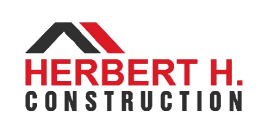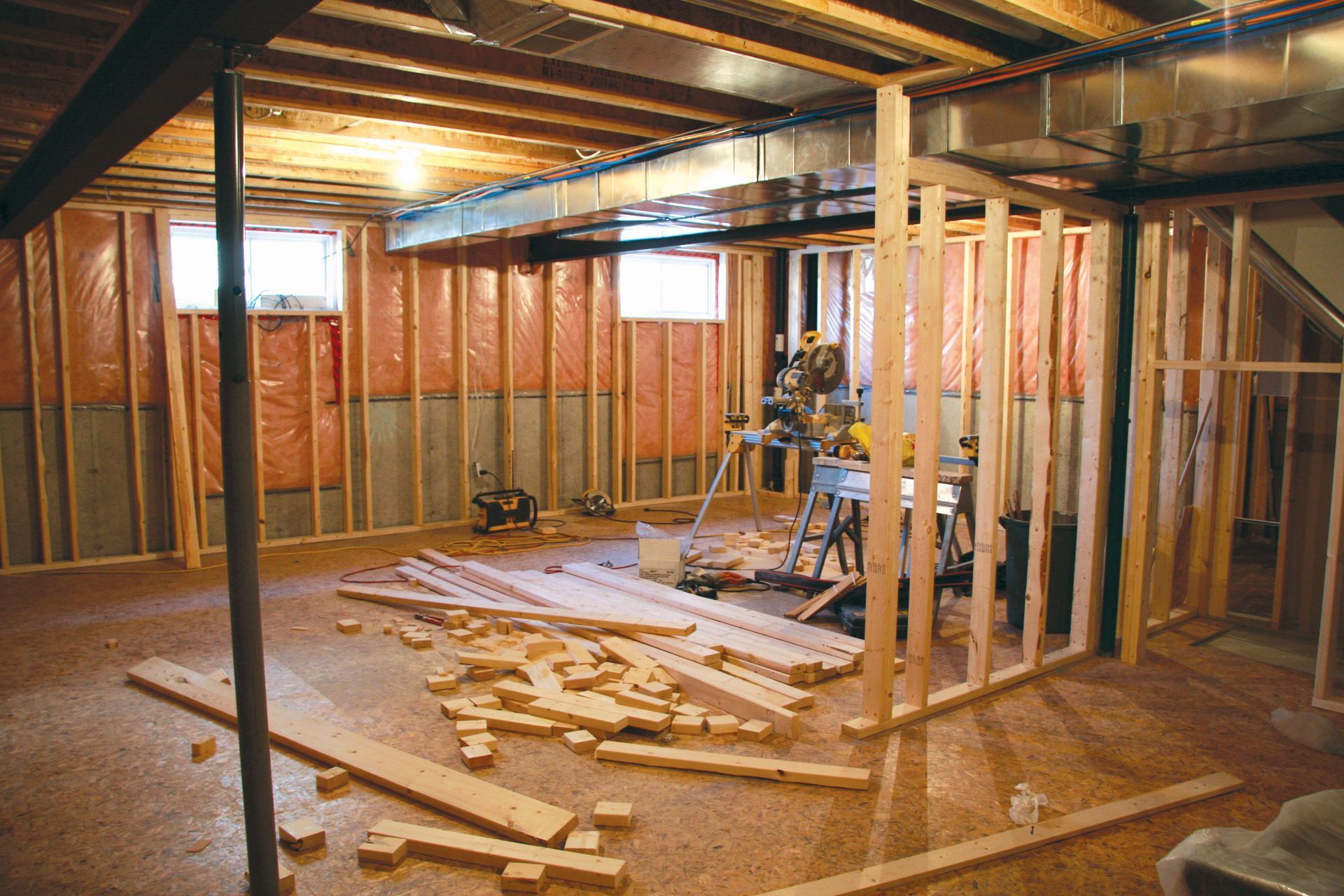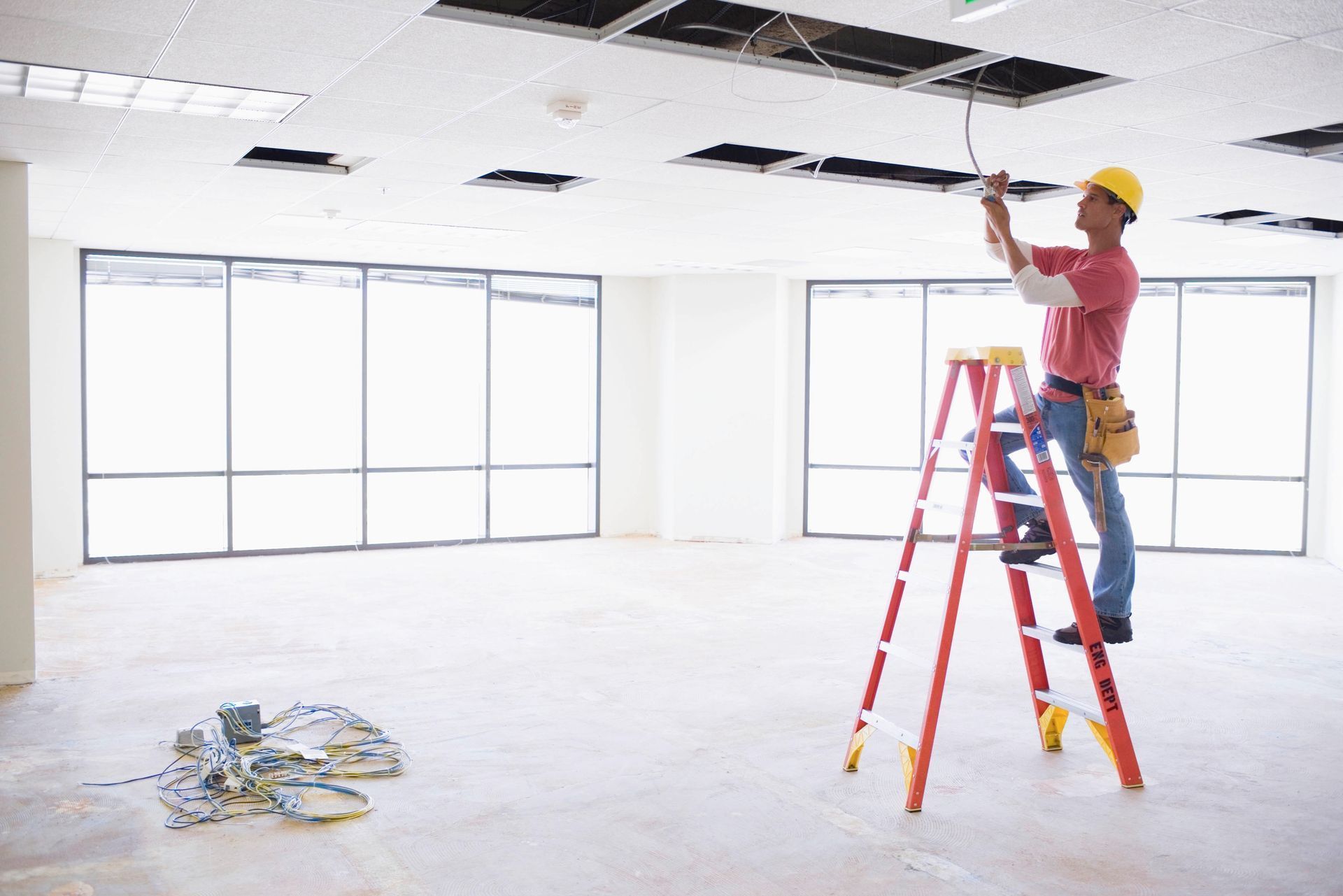November 20, 2025
When embarking on a construction or renovation project, hiring the right general contractor is crucial to its success. Asking the right questions can significantly reduce the risk of encountering problems during the project. By carefully selecting a contractor, homeowners can ensure that their investment, such as a bathroom remodel, reaps the desired rewards. Comprehensive vetting of potential contractors helps to establish trust and accountability. Thus, understanding what things to ask can create a solid foundation for collaboration and project success.
1. Experience and Qualifications
One of the first considerations when hiring a general contractor is their experience and qualifications. Asking about how long they have been in the business provides insight into their stability and reliability. Contractors with extensive experience are more likely to foresee potential challenges and adapt effectively. It's also crucial to inquire about their past projects and areas of specialization. This information helps homeowners assess whether the contractor's skills align with the project's specific needs.
References from past clients can offer valuable insights into the contractor's work quality and client satisfaction. Relatable projects in their portfolio can be reassuring, showcasing their ability to handle specific styles or scales of work. Testimonials and reviews can also highlight strengths and weaknesses that might not be apparent in the initial meetings. Moreover, possessing industry certifications or accreditations can reflect a commitment to upholding professional standards. All these factors combined paint a comprehensive picture of the contractor's competence.
It's beneficial to explore if the contractor has worked on similar projects to yours. When taking on projects with high stakes, like a bathroom remodel, their experience with similar work can be a significant advantage. Knowing they have successfully completed comparable projects can offer peace of mind and build trust. Asking detailed questions about those past projects can provide clarity on potential hurdles and successful strategies. This familiarity helps to navigate unexpected challenges smoothly, promoting project efficiency and effectiveness.
2. Licensing and Insurance
Verifying a general contractor's licensing and insurance is a crucial step in the hiring process. A valid license confirms that the contractor has met local regulatory requirements and industry standards. This compliance ensures that they are legally capable of performing the work in your area. Contracts without the necessary licenses can expose homeowners to legal and financial risks. Therefore, it's vital to request proof of licensing to confirm the contractor's legitimacy.
Insurance plays an equally important role in safeguarding your project. Contractors should provide proof of insurance covering general liability, worker's compensation, and other specific needs. Insurance protects against potential damages or injuries that may occur during the project. Understanding the scope of their insurance can prevent unexpected costs falling on homeowners. Prior verification ensures that, should any incidents arise, they will not disrupt the project financially or legally.
Additionally, it's essential to discuss how the contractor manages worker's compensation and liability issues. Knowing these policies will inform you about the contractor's approach to project safety and risk management. Understanding liabilities can provide clarity in the unfortunate event of accidents or disputes. Clarification on regulatory permits and local building codes is also necessary. Inquiries in this area prepare you for navigating legal obligations specific to your project's location.
3. Project Timeline and Management
A clear project timeline is fundamental to maintaining project momentum and setting realistic expectations. Discussing timelines with your contractor gives insight into the project's duration and key milestones. This conversation should include contingency plans for potential delays and unforeseen issues. An experienced contractor should have strategies to minimize disruptions and maintain progress. Establishing a realistic timeline with room for adjustments is critical to ensuring the project's success.
Understanding the contractor's approach to project management can help in assessing their organizational skills and communication style. Contractors should provide regular updates to keep you informed about progress and any potential issues. This transparency allows for timely decision-making and reduces anxiety about unknown factors. Effective project management involves keeping the project on schedule and ensuring each phase transitions smoothly. Frequent communication builds trust and openness, fostering a collaborative environment.
Identifying your point of contact within the contractor's team is another pivotal aspect of project management. This person acts as your direct line of communication for updates, changes, or concerns. Clarity about your liaison ensures effective and efficient communication throughout. Knowing whom to approach for specific needs or questions streamlines the process, saving time and potential confusion. As the project's liaison, this person facilitates a seamless information flow between you and the contractor's team.
4. Work Crew and Subcontractors
Understanding who will be working on-site is essential for managing expectations and ensuring your project is in capable hands. Asking about the crew's experience and expertise can verify their proficiency. A skillful team is a cornerstone of a successful construction or renovation project. Knowing about the crew members involved also enables you to track the workforce's quality and accountability. Consistent on-site supervision promises adherence to standards and timely completion.
Subcontractors often carry out specialized tasks, making it critical to understand their role in the project. A general contractor typically hires them to handle facets like electrical or plumbing. Inquiring about the qualifications and experience of subcontractors assures you of their ability to deliver quality work. It's beneficial to understand how the general contractor vets and manages subcontractor relationships. Proper vetting processes reveal the contractor's commitment to maintaining high standards.
Accountability in subcontractor work is crucial to the overall project quality. A general contractor should have stringent measures to monitor subcontractor performance. Ensuring quality in their work prevents rework and ensures the project meets expectations. Additionally, having a supervisor on-site consistently increases accountability and adherence to quality standards. Continuous oversight by a supervisor ensures that any deviations from the project plan are promptly addressed.
5. Communication and Conflict Resolution
Effective communication is vital for the smooth execution of any project. Understanding a contractor's preferred communication methods can streamline interactions and avoid misunderstandings. Regular meetings and updates offer peace of mind and foster collaborative problem-solving. This open line of communication helps to address concerns swiftly and ensure both parties are aligned with the project goals. Consistent dialogue builds a transparent and trusting relationship between you and your contractor.
Understanding a contractor's approach to conflict resolution is essential before commencing any work. Disputes or misunderstandings can arise, and it's crucial to know how the contractor plans to handle them. A clear protocol can prevent small issues from escalating, ensuring they are resolved calmly and efficiently. Regular check-ins create opportunities to voice concerns or propose necessary changes. Proactive conflict resolution maintains project momentum and safeguards against prolonged disruptions.
Documentation of changes or additional requests is a best practice in managing expectations and costs. A contractor that prioritizes accurate documentation provides clarity and reduces the risk of disputes. Changes are inevitable in construction, so having a formal process in place is reassuring. This approach provides a comprehensive record that can be referred back to, ensuring transparency. Documenting all changes guarantees that both parties have a clear understanding of any modifications to the project scope.
6. Budget and Payment Arrangements
Discussing budget and payment arrangements with your contractor upfront is indispensable for financial planning. Understanding how project costs are estimated offers insight into expected expenditures and potential overruns. It's imperative to have a comprehensive budget that encompasses all project aspects. A transparent pricing structure prevents unexpected financial burdens during the project's progression. Knowing the payment schedule and terms also aligns finances with project milestones.
Clarifying potential additional costs or change order policies is important for budget management. It's essential to discuss any scenarios that might lead to increased costs. Preempting these discussions can prevent budget stress and prepare for contingencies. Having a written contract detailing all costs and terms ensures nothing is left to assumptions. Structured contracts serve as the central reference for financial and logistical accountability.
Knowing the details of a bathroom remodel or other renovation project's ROI—over 60% according to Forbes—highlights the importance of sound investment management. Ensuring projects are completed within budget maximizes the returns and satisfaction from such investments. Written agreements for all financial dealings create a solid protective measure. This clarity and formality safeguard both parties from future conflict regarding financial claims or expectations. Consequently, a solid financial foundation supports both the project's and the homeowner's success.
Asking comprehensive questions when hiring a general contractor lays the groundwork for a successful construction or renovation project. It's crucial to focus on the contractor's experience, qualifications, insurance, and communication strategies. This in-depth dialogue helps identify the right contractor, preventing potential pitfalls and assuring project efficiency. Understanding the project's financial aspects and anticipated timelines ensures preparation and alignment. Through these strategic questions and points of discussion, homeowners can pave the way for a smooth and successful construction journey. If you're looking for a general contractor, contact Herbet H. Construction today.






